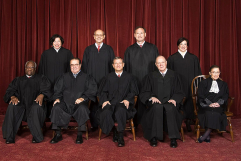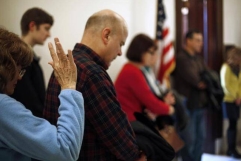
Spain's Constitutional Court has upheld the conscience rights of Christian pharmacists, voiding a local government requirement for them to sell morning-after pills if this goes against their religious beliefs.
The ruling protects pharmacologists from selling contraceptives and having their right to conscientious objection violated.
The high court's decision revolved around the case of a pharmacy in Seville that was fined 3,000 euro ($3,300) by the city council of Andalusia after the pharmacy owners refused to sell morning-after pills, which may induce abortion, to one of their customers.
The Constitutional Court ruled that the fine imposed on the pharmacy violated the owners' right to conscientious objection.
Judges did not see the pharmacy's decision not to sell the pills to have risked the right of a woman "to access contraceptive medicines authorised by the current legal system" as she could have simply bought the pills from another pharmacy.
Judge Andres Ollero, who oversaw the vote, confessed that the matter was a grey area and that he and his fellow magistrates could not be "spiritual directors of citizens, instructing them on which areas of their conscience are protected by fundamental rights and which should be forgotten because they are twisted scruples."
Judge Adela Asua voted against the decision, saying the court was tainted by ideology instead of protecting beliefs. She cautioned that the ruling could be a dangerous precedent that could "bring ill-fated consequences for our state and our coexistence."
However, the magistrates rebuffed the pharmacy owners' decision not to sell condoms, saying in this particular case there is "no conflict of conscience relevant to the constitution."
The court's ruling was praised by José Antonio Díez, general coordinator for the Association for the Defence of the Rights of Conscience, as "historic and pioneering not only in Spain, but in all of Europe."
The decision also ends the vagueness in the law which does not satisfactorily protect the conscience of professionals, said the Professionals for Ethics association of Spain.




















